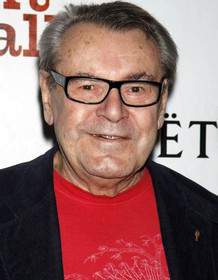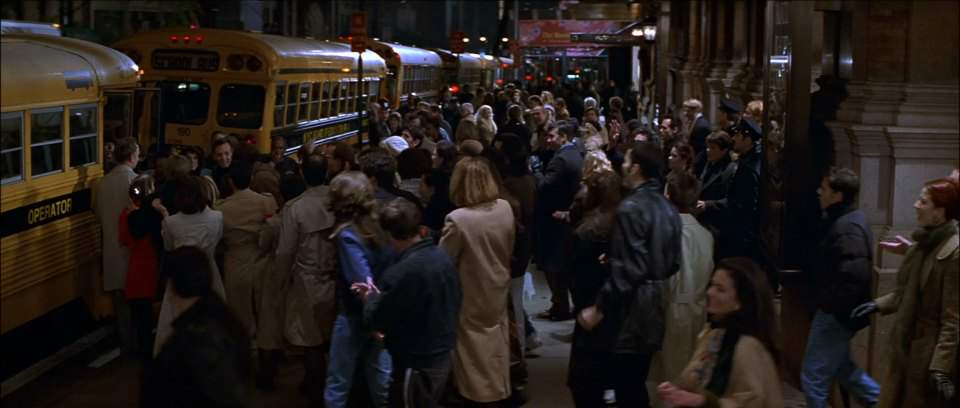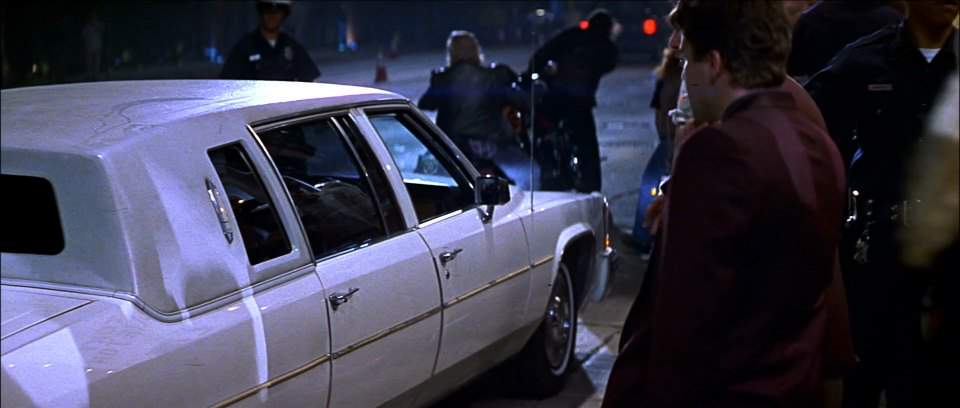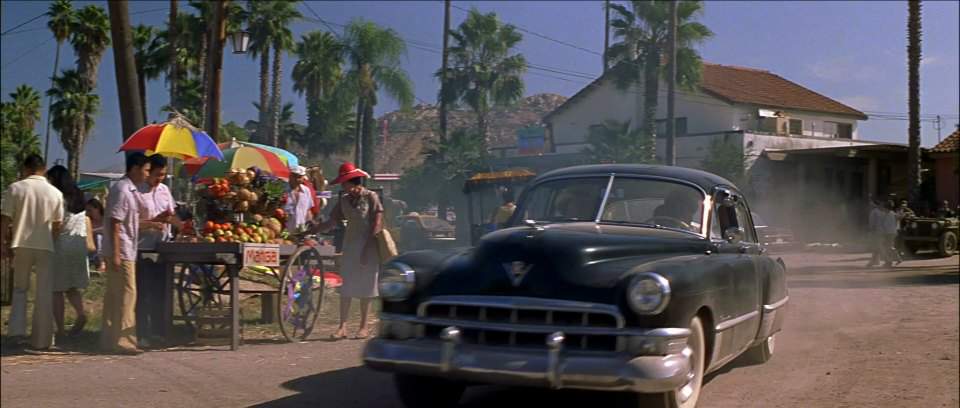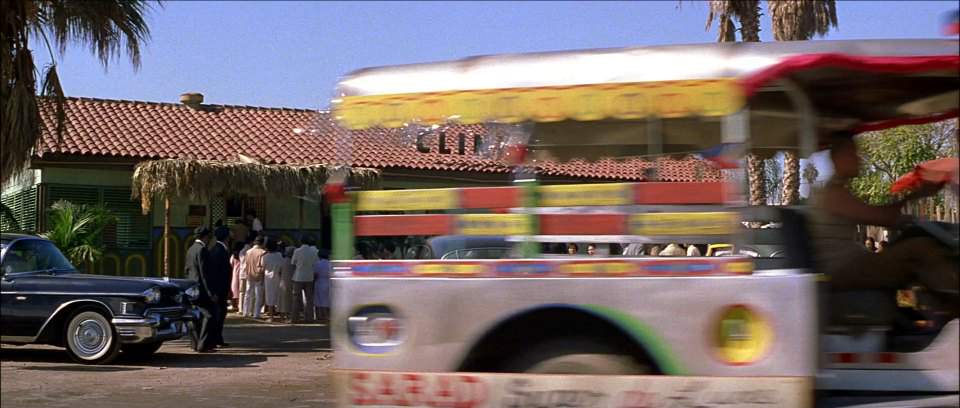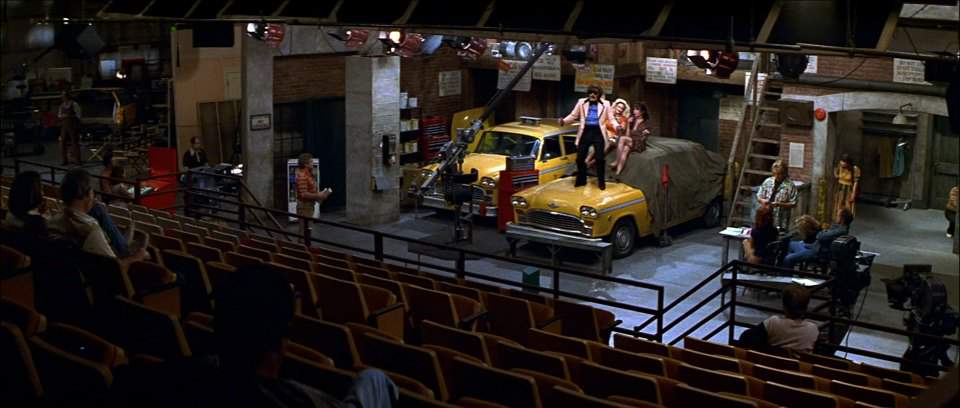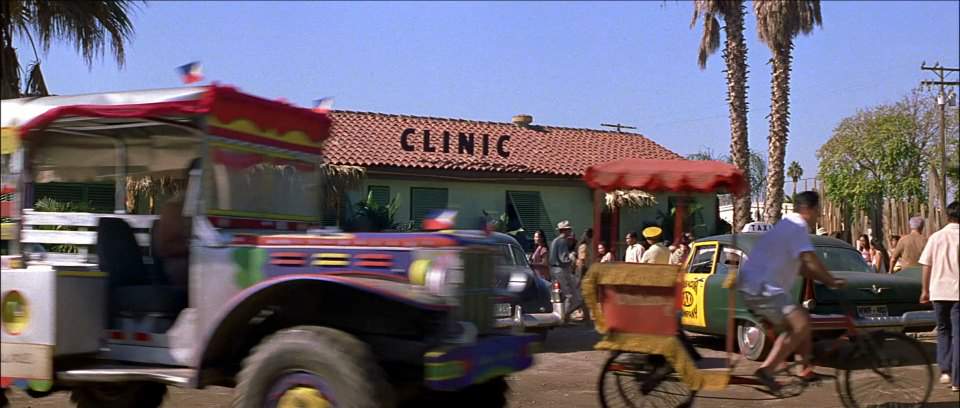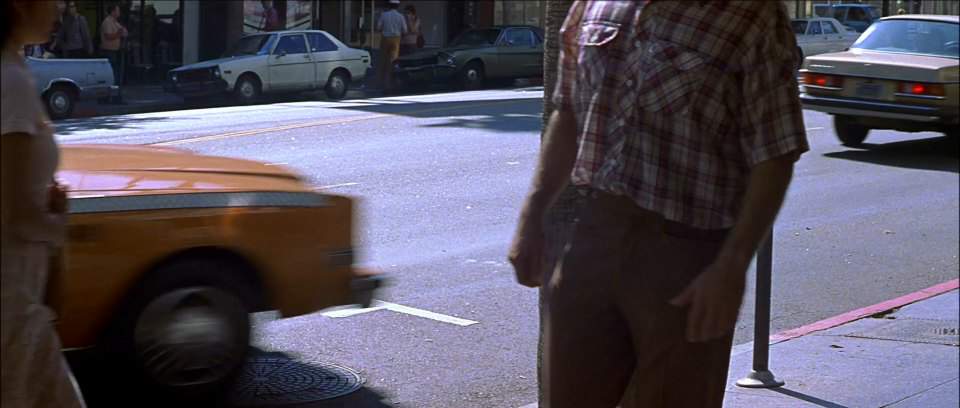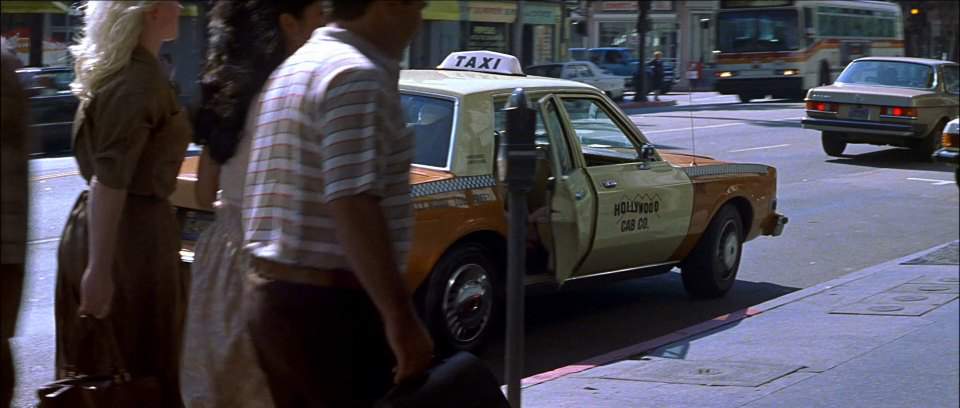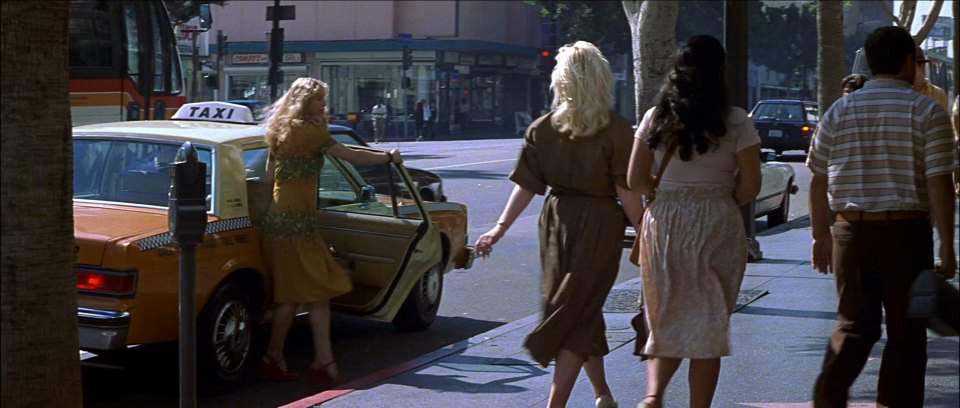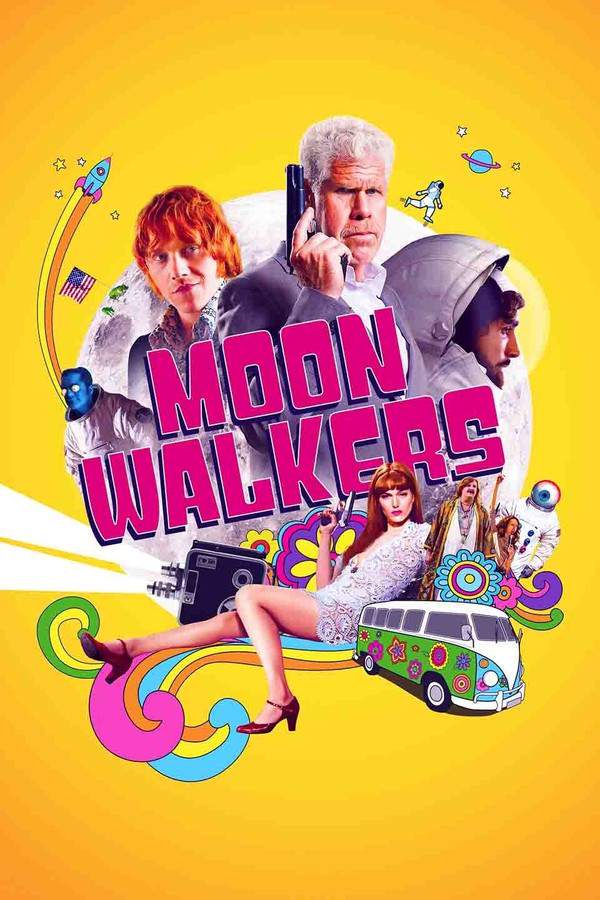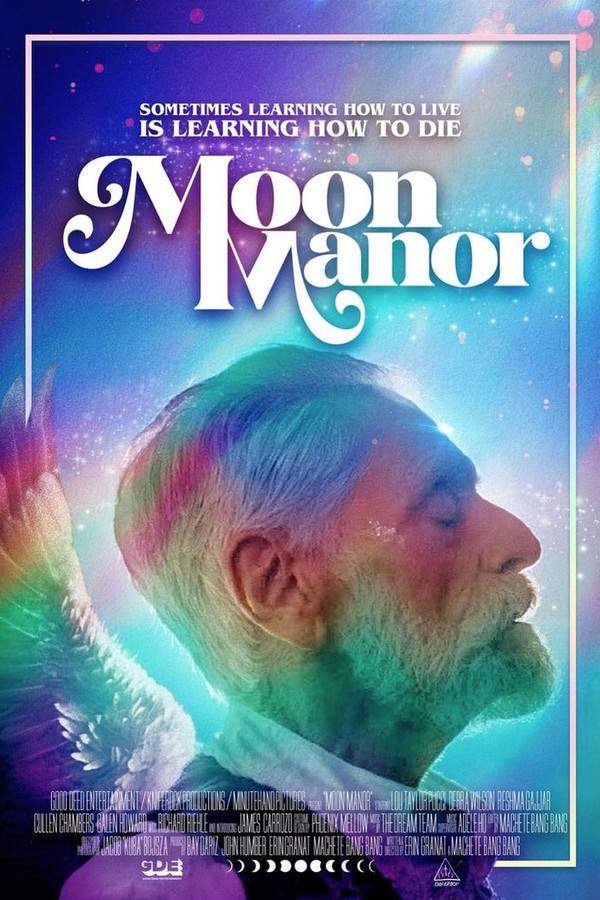Man on the Moon 1999
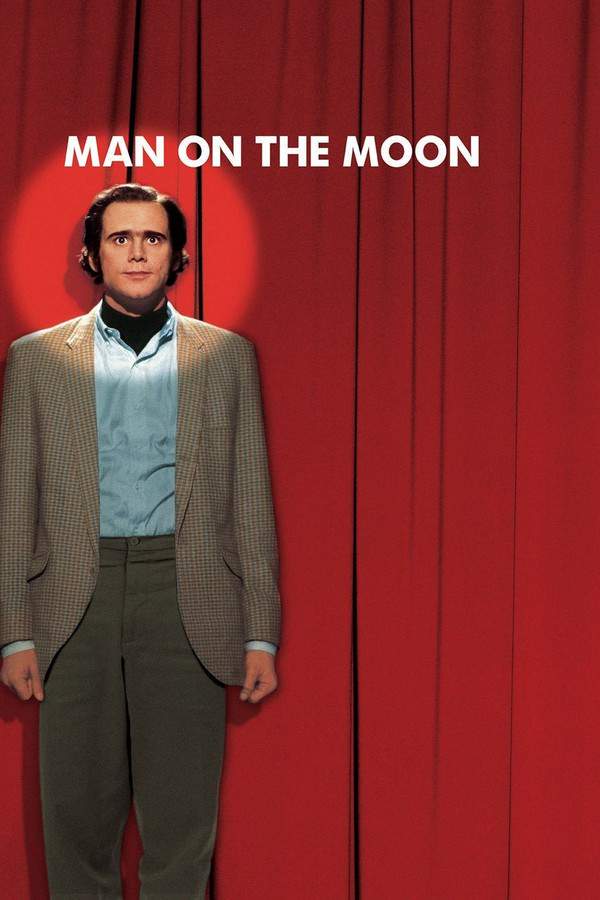
This film explores the extraordinary and often baffling life of Andy Kaufman, brought to a captivating performance by Jim Carrey. Kaufman was a comedian known for his unconventional and provocative performances that challenged audiences and blurred the lines between reality and humor. Through a series of seemingly spontaneous acts and elaborate hoaxes, he consistently kept those around him guessing about his true intentions and persona, leaving a lasting legacy of comedic innovation.
Does Man on the Moon have end credit scenes?
Yes!
Man on the Moon does have end credit scenes. Stay until the very end!
Meet the Full Cast and Actors of Man on the Moon
Explore the complete cast of Man on the Moon, including both lead and supporting actors. Learn who plays each character, discover their past roles and achievements, and find out what makes this ensemble cast stand out in the world of film and television.
External Links and Streaming Options
Discover where to watch Man on the Moon online, including streaming platforms, rental options, and official sources. Compare reviews, ratings, and in-depth movie information across sites like IMDb, TMDb, Wikipedia or Rotten Tomatoes.
Ratings and Reviews for Man on the Moon
See how Man on the Moon is rated across major platforms like IMDb, Metacritic, and TMDb. Compare audience scores and critic reviews to understand where Man on the Moon stands among top-rated movies in its genre.

58
Metascore
7.5
User Score


64%
TOMATOMETER

79%
User Score

7.4 /10
IMDb Rating

72
%
User Score
Take the Ultimate Man on the Moon Movie Quiz
Challenge your knowledge of Man on the Moon with this fun and interactive movie quiz. Test yourself on key plot points, iconic characters, hidden details, and memorable moments to see how well you really know the film.
Man on the Moon Quiz: Test your knowledge about the life and art of comedian Andy Kaufman as depicted in 'Man on the Moon'.
What iconic character does Andy Kaufman create during his rise to fame?
Tony Clifton
Mighty Mouse
George Shapiro
Lynne Margulies
Show hint
Awards & Nominations for Man on the Moon
Discover all the awards and nominations received by Man on the Moon, from Oscars to film festival honors. Learn how Man on the Moon and its cast and crew have been recognized by critics and the industry alike.
6th Screen Actors Guild Awards 2000

57th Golden Globe Awards 2000

Full Plot Summary and Ending Explained for Man on the Moon
Read the complete plot summary of Man on the Moon, including all major events, twists, and the full ending explained in detail. Explore key characters, themes, hidden meanings, and everything you need to understand the story from beginning to end.
At the outset, Kaufman’s foreign man character claims, due to extensive editing, that this is the end of the film, amusingly playing a record alongside the closing credits before making his exit. Shortly thereafter, Kaufman reappears in his genuine voice, stating, “Had to get rid of the people who don’t understand me, and don’t want to try.” He then begins to project the actual film, starting with a glimpse of his childhood home in Long Island, New York, in 1957.
Jumping ahead to 1973 in New York City, we meet Andy Kaufman (Jim Carrey), a struggling entertainer whose performances often miss the mark in nightclubs. The audience, yearning for comedy, is thrown off by his rendition of the Mighty Mouse theme song and his excessive use of the “foreign man” persona. Just when it seems Kaufman might lack real talent, he dons a dazzling rhinestone jacket and perfectly impersonates Elvis. The crowd erupts in applause, realizing they’ve been cleverly duped, making this moment a rewarding payoff for both Kaufman and his audience. This clever trickery marks just the beginning of Kaufman’s attempts to outwit the audience, establishing “fooling the audience” as a signature aspect of his performance artistry.
Soon after his successful con on Saturday Night Live, his eccentric and unique style draws the attention of talent agent George Shapiro (Danny DeVito), who promptly signs him on as a client. With Shapiro’s help, Kaufman lands a role on the sitcom Taxi in 1975, which he reluctantly takes for the fame, fortune, and opportunity to create his own television special. However, he secretly despises the show, often taking on a second job as a busboy at a restaurant. During this period, he also gains fame through guest appearances on Saturday Night Live.
In a nightclub setting, Shapiro witnesses an outrageous performance by a brash lounge singer named Tony Clifton, created by Kaufman alongside his collaborator, Bob Zmuda. Strangely, Clifton appears uninviting and foul-mouthed yet Kaufman has a plan to feature this character on Taxi if it’s on his terms. In a twist, when Clifton meets with Shapiro in private and removes his sunglasses, it is revealed that he is actually Kaufman in disguise, once again pulling the wool over the audience’s eyes.
Fast forward to 1980, Kaufman grapples with the challenges brought on by his rising star status. While on college campuses, he attempts to perform in his unconventional style, only to be met with dissatisfaction from the audiences, who predominantly wish to see his more recognizable characters, like Latka Gravas or the Mighty Mouse singer. Disillusioned with Taxi, Kaufman storms the set as Clifton to create chaos leading to his expulsion. Expressing his frustration to Shapiro, he admits he often wonders how to captivate an audience, humorously suggesting, “short of faking my own death or setting the theater on fire.”
With Zmuda’s assistance, Kaufman decides to pursue a career in professional wrestling, opting to wrestle only women and gloat after victories, branding himself the “Inter-Gender Wrestling Champion.” During this time, he develops feelings for one of the women he wrestles, Lynne Margulies (Courtney Love). Nevertheless, Kaufman’s controversial wrestling persona makes him a target of disdain across America as he thrives on provoking reactions, failing to recognize the backlash it generates. Eventually, professional wrestler Jerry “The King” Lawler challenges Kaufman to a “real” wrestling match, an event that leads to Kaufman being severely injured.
In a shocking appearance on NBC’s Late Night With David Letterman, Kaufman and Lawler reveal the unorthodox nature of their relationship, further blurring the lines of reality and performance artistry. Regrettably, this ruse backfires when Kaufman finds himself voted off of Saturday Night Live by the viewing audience.
As time progresses to 1983, Kaufman and Lynne settle into a new home when they receive news from George that Taxi has been canceled, which leaves Kaufman indifferent. Shortly thereafter, he discovers a painful boil on the back of his neck, which physicians later identify as a cyst. By November, after convening with friends and family, Kaufman discloses his terminal diagnosis of a rare form of lung cancer, leading many to dismiss it as yet another Kaufman prank, including Zmuda, who believes a faux death would serve as a perfect gag.
By early 1984, conscious of his dwindling time, Kaufman achieves his dream of performing at Carnegie Hall. What a moment it is, culminating with him inviting the entire audience out for milk and cookies to celebrate. As his health deteriorates rapidly, Kaufman ventures to the Philippines, seeking an unconventional medical solution through what’s known as psychic surgery. Upon realizing it is a scam reminiscent of his own performance art, Kaufman bursts into laughter—the epitome of humor turning inward. Tragically, a few months after his return to Los Angeles, Kaufman succumbs to cancer at the young age of 35.
In a poignant closure to this tale, a year later in 1985, Tony Clifton graces Andy Kaufman’s memorial tribute at The Comedy Store, performing “I Will Survive.” As the camera pans the audience, Zmuda realizes the sudden truth of Kaufman’s passing, leaving him to wonder if the elusive Kaufman could still be alive somewhere. The film concludes with a stunning neon portrait of Kaufman alongside legendary comedians like Groucho Marx and Laurel and Hardy, forever immortalized in the world of comedy.
Uncover the Details: Timeline, Characters, Themes, and Beyond!

Coming soon on iOS and Android
The Plot Explained Mobile App
From blockbusters to hidden gems — dive into movie stories anytime, anywhere. Save your favorites, discover plots faster, and never miss a twist again.
Sign up to be the first to know when we launch. Your email stays private — always.
Watch Trailers, Clips & Behind-the-Scenes for Man on the Moon
Watch official trailers, exclusive clips, cast interviews, and behind-the-scenes footage from Man on the Moon. Dive deeper into the making of the film, its standout moments, and key production insights.
Cars Featured in Man on the Moon
Explore all cars featured in Man on the Moon, including their makes, models, scenes they appear in, and their significance to the plot. A must-read for car enthusiasts and movie buffs alike.
Man on the Moon Themes and Keywords
Discover the central themes, ideas, and keywords that define the movie’s story, tone, and message. Analyze the film’s deeper meanings, genre influences, and recurring concepts.
Man on the Moon Other Names and Titles
Explore the various alternative titles, translations, and other names used for Man on the Moon across different regions and languages. Understand how the film is marketed and recognized worldwide.
Similar Movies To Man on the Moon You Should Know About
Browse a curated list of movies similar in genre, tone, characters, or story structure. Discover new titles like the one you're watching, perfect for fans of related plots, vibes, or cinematic styles.
Quick Links: Summary, Cast, Ratings, More

What's After the Movie?
Not sure whether to stay after the credits? Find out!
Explore Our Movie Platform
New Movie Releases (2025)
Famous Movie Actors
Top Film Production Studios
Movie Plot Summaries & Endings
Major Movie Awards & Winners
Best Concert Films & Music Documentaries
Movie Collections and Curated Lists
© 2025 What's After the Movie. All rights reserved.


